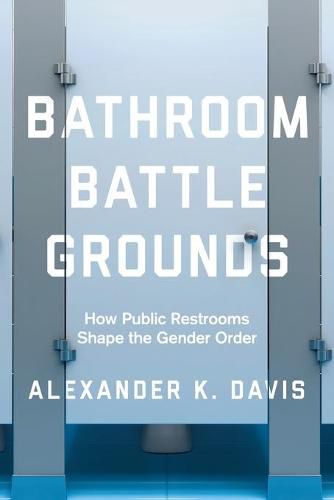Readings Newsletter
Become a Readings Member to make your shopping experience even easier.
Sign in or sign up for free!
You’re not far away from qualifying for FREE standard shipping within Australia
You’ve qualified for FREE standard shipping within Australia
The cart is loading…






Today’s debates about transgender inclusion and public restrooms may seem unmistakably contemporary, but they have a surprisingly long and storied history in the United States-one that concerns more than mere potty politics. Alexander K. Davis takes readers behind the scenes of two hundred years’ worth of conflicts over the existence, separation, and equity of gendered public restrooms, documenting at each step how bathrooms have been entangled with bigger cultural matters: the importance of the public good, the reach of institutional inclusion, the nature of gender difference, and, above all, the myriad privileges of social status. Chronicling the debut of nineteenth-century comfort stations, twentieth-century mandates requiring equal-but-separate men’s and women’s rooms, and twenty-first-century uproar over laws like North Carolina’s bathroom bill, Davis reveals how public restrooms are far from marginal or unimportant social spaces. Instead, they are-and always have been-consequential sites in which ideology, institutions, and inequality collide.
$9.00 standard shipping within Australia
FREE standard shipping within Australia for orders over $100.00
Express & International shipping calculated at checkout
Today’s debates about transgender inclusion and public restrooms may seem unmistakably contemporary, but they have a surprisingly long and storied history in the United States-one that concerns more than mere potty politics. Alexander K. Davis takes readers behind the scenes of two hundred years’ worth of conflicts over the existence, separation, and equity of gendered public restrooms, documenting at each step how bathrooms have been entangled with bigger cultural matters: the importance of the public good, the reach of institutional inclusion, the nature of gender difference, and, above all, the myriad privileges of social status. Chronicling the debut of nineteenth-century comfort stations, twentieth-century mandates requiring equal-but-separate men’s and women’s rooms, and twenty-first-century uproar over laws like North Carolina’s bathroom bill, Davis reveals how public restrooms are far from marginal or unimportant social spaces. Instead, they are-and always have been-consequential sites in which ideology, institutions, and inequality collide.